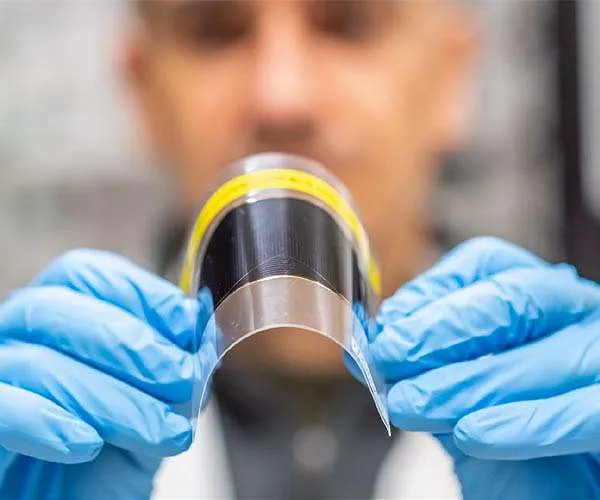Bendy, ultra-thin solar cell
- ESA has actually backed the development of this flexible, ultra-thin solar cell to provide the most effective power to mass proportion for area goals.

Almost 0.02 mm thick - thinner than a human hair - the model solar cells were created by Azur Space Solar Power in Germany as well as tf2 in the Netherlands; the cell seen below is from tf2. The project was backed with ESA's Technology Development Element, exploring unique modern technologies for room.
Having as much as 32% 'end of life' performance, the solar cells were generated utilizing a strategy called 'epitaxial lift-off', indicating they were peeled the Germanium substratum layer they were at first put down on, so the pricey product can be recycled.
Both three-way- as well as quadruple-junction solar cells were produced. This implies they include 3 or 4 various layers of product, optimized to use various wavelengths of light composing the solar range.
These thinner-than-paper solar cells could be taken advantage of for future ESA satellites otherwise high-altitude pseudo satellites (HAPS) - uncrewed airplane or balloons to execute satellite-like jobs from the upper atmosphere.
Also read

